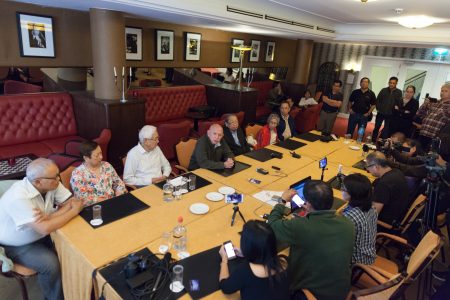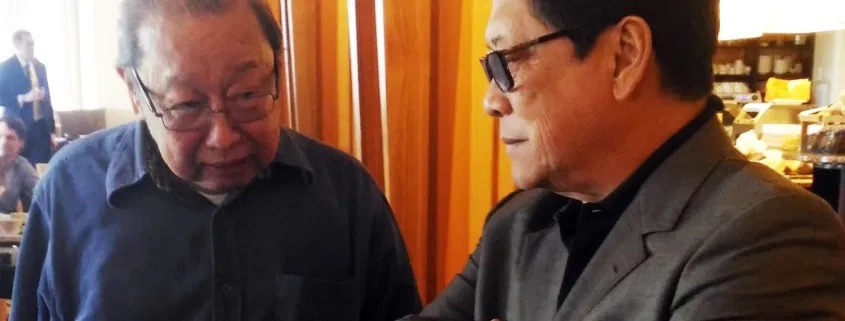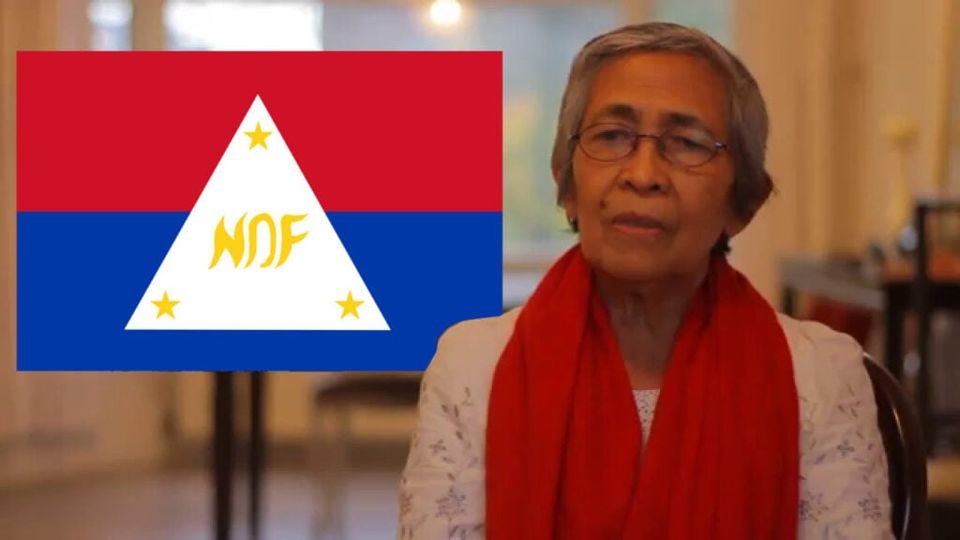Statement by Rey Claro Casambre’s family
July 10, 2021
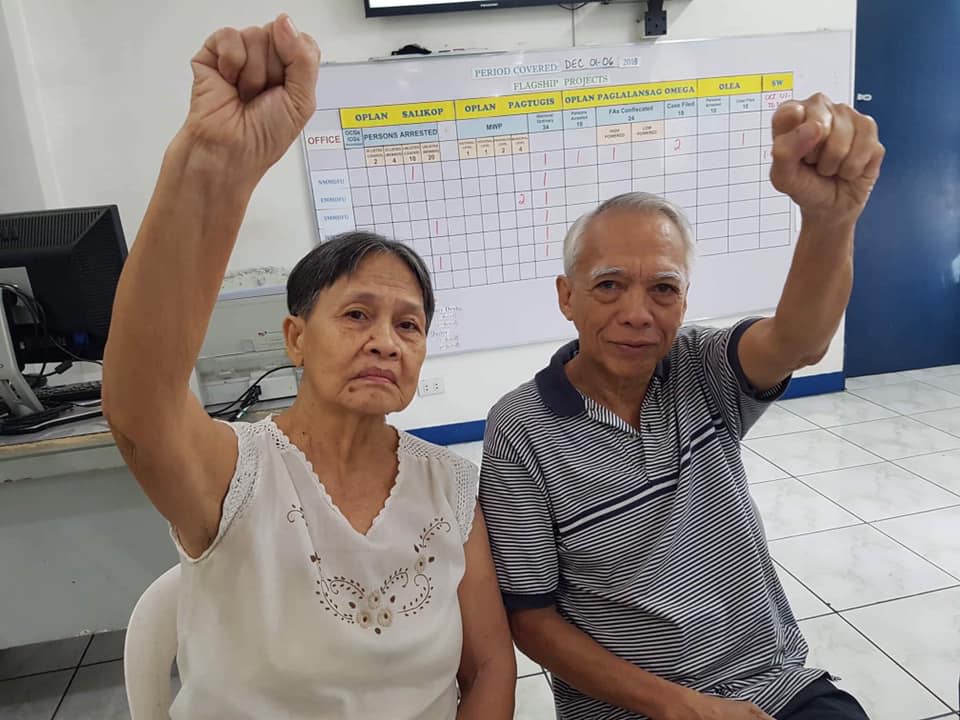
Our real assets, our most valued possessions, the source of our joy, security and peace of mind cannot be found in any bank or monetary institution. They lie in our lifetime commitment to serve the common good, in solidarity with the downtrodden who are the real giants and heroes in this world. Intangible yet real and vibrant, these treasures are inextricably embedded in our minds, beyond the reach of any state entity, and silently but fiercely ablaze in our hearts, which no statute can ever freeze.
After some effort, we managed to get last 16 June 2021, in behalf of Mr. Rey Claro Casambre, copies of official bank documents confirming that his accounts have all been frozen in accordance with Anti-Terror Council (ATC) Resolution 17 and Anti-Money-Laundering Council (AMLC) Resolution TF-40 (2021), the named account holder having been designated a “terrorist” under the Anti-Terrorist Act (ATA) of 2020.
We had felt the adverse impact of this action a month earlier, even before the announcement of the designation. We attempted, as was usual, to withdraw cash from Mr. Casambre’s ATM account to pay for some groceries, and got the message: “The account does not exist. “
We should have thought there was something sinister, perhaps products of the ATC’s and the NTF-ELCAC’s intent to deprive even the harmless and innocent of their daily sustenance. For all we know they couldn’t care less. We recall that my parents were one of the NTF’s first victims when they were both arrested and thrown into cramped jails a few days after the NTF-ELCAC was officially created by EO 70.
It is doubtful they had as much as lifted a finger to determine whether such “assets” were actually being used to finance or support terrorism, as they allege publicly while disclosing neither supposed evidence nor proof.
Any bank teller would wonder why Mr. Casambre’s modest accounts would merit even a microsecond of scrutiny, not to mention suspicion. His modest deposits are no more than
1) accumulated savings from allowances from the Phil Peace Center, an NGO of which Mr Casambre has been the Executive Director and Ms Casambre a researcher-translator for the past 3 decades
(2) various honoraria from occasional writing contracts and speaking engagements, and
3) accumulated cash gifts from relatives for Christmas, birthdays and similar occasions.
To be sure ATC Resolution 17 and the consequent AMLC Resolution TF40 Series 2021 freezing Mr. Casambre’s bank accounts were clothed with legalese, in a thinly veiled effort to conceal its glaring legal infirmities.
My parents have been unjustly haled to court and eventually proven innocent more times than one would wish (my mother was illegally arrested and detained 4x, my father thrice – Cora was acquitted by the military commission of subversion charges back in 1977), enough to be familiar with the following universal legal standards:
- One cannot be legally penalized for an alleged crime without due process, which includes the accused being informed beforehand of the charges and the evidence on which the charges are based,
- One is presumed innocent until proven otherwise by an independent, fair and competent court
- One cannot be subjected to double jeopardy, or being charged, tried and penalized for an alleged offence of which one has been previously cleared,
- One cannot be penalized by applying a law retroactively.
The circumstances narrated in detail in my father’s May 13 statement, “Nobody Believes I’m a Terrorist” illustrate how the recent ATC designation violates all the basic legal precepts enumerated above.
The designations have thus concretized and provided living proof of the theoretical legal arguments raised, including in the 39 Petitions, which includes my father’s, he is one of the petitioners, submitted to the Supreme Court to declare the ATA 2020 unconstitutional.
It is idle for the Department of Justice to crow that none of the designated individuals had appealed their designation by availing of the remedies under the ATA and its Implementing Rules and Regulations (IRR), and under the Terrorist Financing Prevention Act and its IRR, as though silence were an indication of guilt.
The ATC designation is the fruit of the poisoned ATA tree. Why and how would one seek or expect relief from a toxic brew by consenting to drink more of it?
Yet the ATC designations and freezing of assets are a mere tip of the proverbial iceberg of tyranny and injustice wrought on our people for the past five years, paling in comparison, significance and horror to the EJKs, disappearances and other grave human rights violations by state forces. It is terrifying to see so much state power wielded with impunity against the powerless, defenseless and innocent. Yet it is also tragicomic that the high and mighty would plunge into such a squalid abyss for such puny gains, and ultimately counterproductive outcomes.
Freezing my father’s and others’ almost negligible accounts purportedly to cripple the communist movement is pathetic. Instead, it has deprived my elderly parents of their funds for essential needs, magnified the crisis of the pandemic, and is bringing anxiety to our family and friends.
Despite all this, we want the ATC to know that in our family’s case, our real assets, our most valued possessions, the source of our joy, security and peace of mind cannot be found in any bank or monetary institution. They lie in our lifetime commitment to serve the common good, in solidarity with the downtrodden who are the real giants and heroes in this world. Intangible yet real and vibrant, these treasures are inextricably embedded in our minds, beyond the reach of any state entity, and silently but fiercely ablaze in our hearts, which no statute can ever freeze.

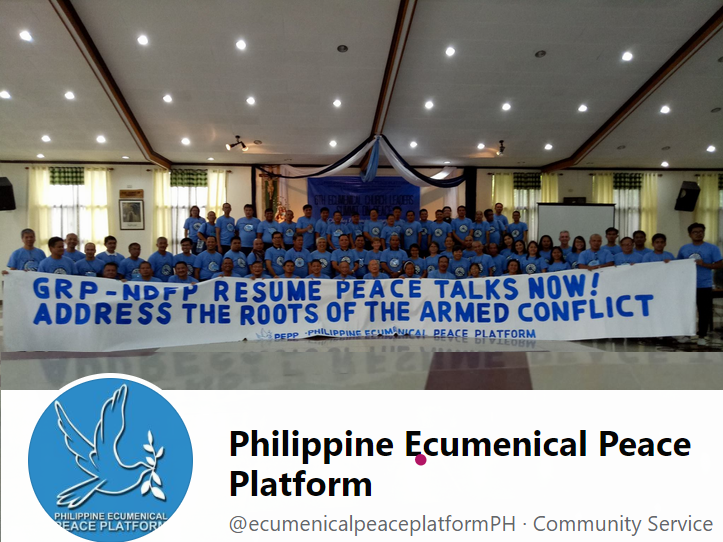 Ref: Archbishop Antonio J. Ledesma, DD
Ref: Archbishop Antonio J. Ledesma, DD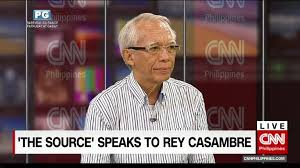
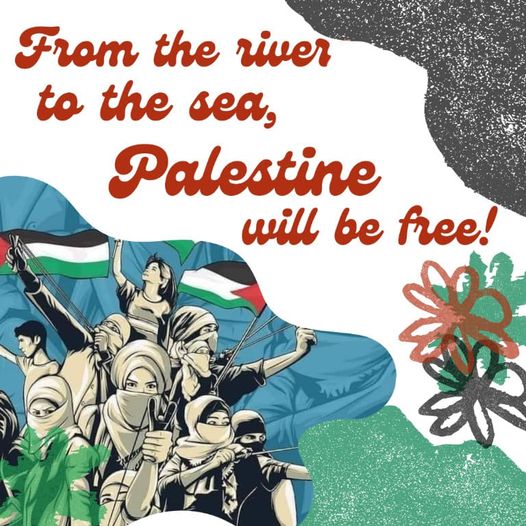
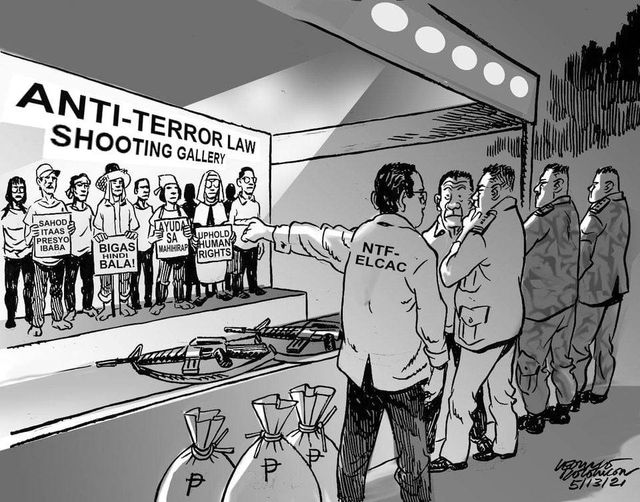
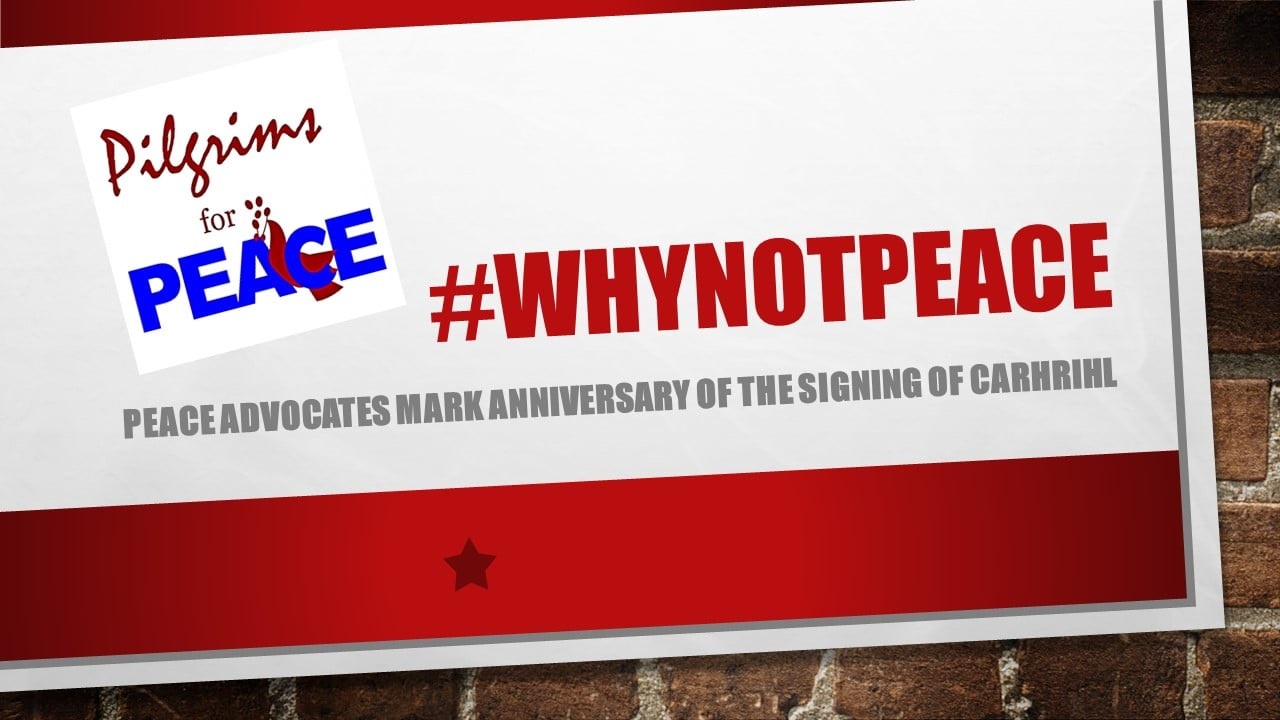
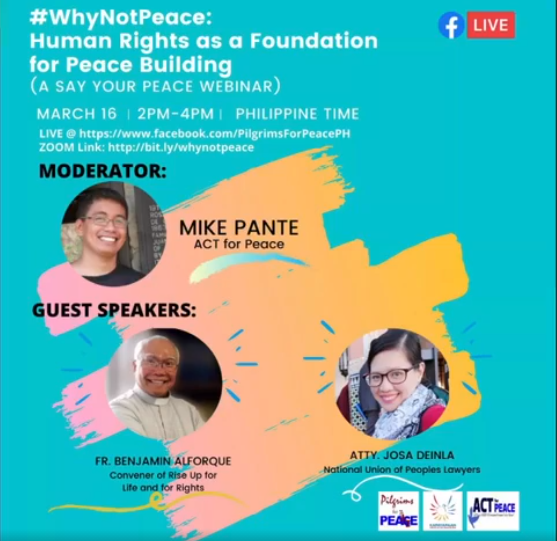 [youtube https://www.youtube.com/watch?v=EJYCGv2xaLI]
[youtube https://www.youtube.com/watch?v=EJYCGv2xaLI]